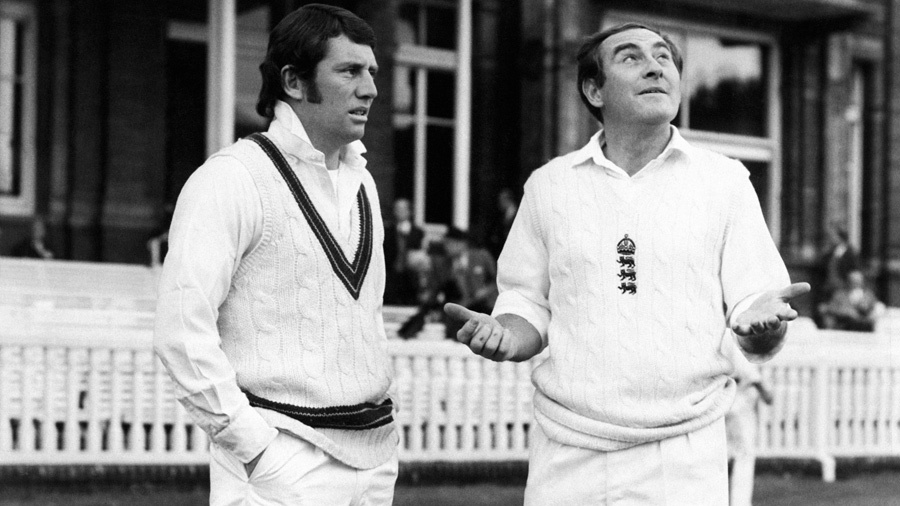I know about social mobility: I went to underperforming state schools, and am now a barrister. Could somebody take the same route today? It’s highly unlikely

‘Those inside the system naturally recruit in their own image. This then entrenches the lack of any potential for upward mobility and means that the vast majority are excluded.’ Photograph: Mick Tsikas/AAP
It is a common promise made to the next generation. “If you work hard, and do the right thing, you will be able to get on in life.” I believe that it is a promise that we have no capacity to fulfil. And that’s because its underlying assumptions must be revisited.
Imagine a life living in quads. You attend a highly prestigious school in which you dash from one quad to the next for your classes. You then continue on to yet another prestigious institution for your tertiary education, say Oxford or Cambridge University, and yet more quads with manicured lawns. Then you end up in the oasis of Middle Temple working as a barrister: more manicured lawns and, yes, you guessed it, more quads. You have clearly led a very square and straight life. Effortlessly gliding from one world to the next with clear continuity, familiarity and ease.
Now contrast the above oasis with the overcrowded and under-performing schools of inner cities, going home to a bedroom which you share with many other siblings. A home you are likely to vacate when the council can’t house you there anymore. Perhaps a single-parent household where you have caring duties at a young age, or a household where no one works. A difficult neighbourhood where the poverty of ambition is palpable, stable families a rarity, and role models very scarce.
The unwritten rules are rarely shared and 'diversity' and 'open recruitment' have made little if any difference
The former trajectory, in some or all its forms, is much more likely to lend itself to a more successful life in Britain. The latter means you may have the grades and talent, despite the odds, but you’re still lacking the crucial ingredients essential to succeeding. I don’t have to imagine much of this. I have experienced both of these extremes in my short lifetime.
My mother gave birth to 12 children. I arrived in London at the age of nine, speaking practically no English. I attended some of the worst performing schools in inner-city London and was raised exclusively on state benefits. Many years later I was lucky enough to attend Oxford on a full scholarship for my postgraduate degree. Now as a barrister I am a lifetime member of The Honourable Society of Lincoln’s Inn.
Is my route possible for anyone in the next generation with whom I share a similar background? I believe not. And this is not because they are any less able or less dedicated to succeed.
What I have learned in this short period of time is that the pervasive narrative of “if you work hard you will get on” is a complete myth. It’s not true and we need stop saying it. This is because “working hard, and doing the right thing” barely gets you to the starting line. Furthermore, it means something completely different depending on to which context you’re applying this particular notion. So much more is required.
I have come to understand that the systems that underpin the top professions in Britain are set up to serve only a certain section of society: they’re readily identifiable by privileged backgrounds, particular schools and accents. To some this may seem obvious, so writing it may be superfluous. But it wasn’t obvious to me growing up, and it isn’t obvious to many others. The unwritten rules are rarely shared and “diversity” and “open recruitment” have tried but made little if any difference.
Those inside the system then naturally recruit in their own image. This then entrenches the lack of any potential for upward mobility and means that the vast majority are excluded.
As a form of short-term distraction, we are obsessed with elevating token success stories which distort the overall picture. The story of the Somali boy who got a place at Eton, or the girl from the East End who is now going to MIT. These stories may seem inspiring at first blush, but they skew the complex picture that exists in deprived communities. It perpetuates the simple notion that what’s required is working hard, and that all else afterwards falls neatly into place. This simple ritual we seem to constantly engage in is therefore as much about setting up false hopes for other children, as it is about privileged, middle-class-led institutions making themselves feel good.
The reality is that there are many like them trying hard to do better, but may be lacking the environment to fully realise their potential. Are they worth less? When told to “dream big” and it will happen, who will tell them that failure had nothing to do with their lack of vision? But that real success, especially from their starting point, often boils down to a complex combination of circumstances: luck, sustained stability, the right teachers at the right time, and even not experiencing moments of grief at crucial, destabilising junctures.
Improving educational attainment is critical, and so much progress has been made over the years to improve this. But this is not enough. Employers must see hiring youngsters from poorer backgrounds as good for business as well as for a fairer society. They must be assisted with a real chance to succeed, in a non-judgmental context and inclusive environment. They must do more to focus on potential rather than polish. More leadership and more risk-taking are required on this front.
Perversely, class and accents remain an overwhelmingly important way of judging intelligence. In France or Germany, for example, your accent rarely matters. Your vocabulary and conjugation will give much more away, but never your accent, apart from regional perhaps. I don’t see this mindset shifting, so my advice to youngsters has remained: you need to adapt yourself. You need to find the right way to speak to different people, at different times in different contexts. This is not compromising who you are, but rather adapting to the relevant surroundings.
We need to do more to double down on improving environments both at home and at school which continuously constrain potential. If the adage that hard work truly matters rings true, then we must do more – at all levels of society – to make it a reality.
It is a common promise made to the next generation. “If you work hard, and do the right thing, you will be able to get on in life.” I believe that it is a promise that we have no capacity to fulfil. And that’s because its underlying assumptions must be revisited.
Imagine a life living in quads. You attend a highly prestigious school in which you dash from one quad to the next for your classes. You then continue on to yet another prestigious institution for your tertiary education, say Oxford or Cambridge University, and yet more quads with manicured lawns. Then you end up in the oasis of Middle Temple working as a barrister: more manicured lawns and, yes, you guessed it, more quads. You have clearly led a very square and straight life. Effortlessly gliding from one world to the next with clear continuity, familiarity and ease.
Now contrast the above oasis with the overcrowded and under-performing schools of inner cities, going home to a bedroom which you share with many other siblings. A home you are likely to vacate when the council can’t house you there anymore. Perhaps a single-parent household where you have caring duties at a young age, or a household where no one works. A difficult neighbourhood where the poverty of ambition is palpable, stable families a rarity, and role models very scarce.
The unwritten rules are rarely shared and 'diversity' and 'open recruitment' have made little if any difference
The former trajectory, in some or all its forms, is much more likely to lend itself to a more successful life in Britain. The latter means you may have the grades and talent, despite the odds, but you’re still lacking the crucial ingredients essential to succeeding. I don’t have to imagine much of this. I have experienced both of these extremes in my short lifetime.
My mother gave birth to 12 children. I arrived in London at the age of nine, speaking practically no English. I attended some of the worst performing schools in inner-city London and was raised exclusively on state benefits. Many years later I was lucky enough to attend Oxford on a full scholarship for my postgraduate degree. Now as a barrister I am a lifetime member of The Honourable Society of Lincoln’s Inn.
Is my route possible for anyone in the next generation with whom I share a similar background? I believe not. And this is not because they are any less able or less dedicated to succeed.
What I have learned in this short period of time is that the pervasive narrative of “if you work hard you will get on” is a complete myth. It’s not true and we need stop saying it. This is because “working hard, and doing the right thing” barely gets you to the starting line. Furthermore, it means something completely different depending on to which context you’re applying this particular notion. So much more is required.
I have come to understand that the systems that underpin the top professions in Britain are set up to serve only a certain section of society: they’re readily identifiable by privileged backgrounds, particular schools and accents. To some this may seem obvious, so writing it may be superfluous. But it wasn’t obvious to me growing up, and it isn’t obvious to many others. The unwritten rules are rarely shared and “diversity” and “open recruitment” have tried but made little if any difference.
Those inside the system then naturally recruit in their own image. This then entrenches the lack of any potential for upward mobility and means that the vast majority are excluded.
As a form of short-term distraction, we are obsessed with elevating token success stories which distort the overall picture. The story of the Somali boy who got a place at Eton, or the girl from the East End who is now going to MIT. These stories may seem inspiring at first blush, but they skew the complex picture that exists in deprived communities. It perpetuates the simple notion that what’s required is working hard, and that all else afterwards falls neatly into place. This simple ritual we seem to constantly engage in is therefore as much about setting up false hopes for other children, as it is about privileged, middle-class-led institutions making themselves feel good.
The reality is that there are many like them trying hard to do better, but may be lacking the environment to fully realise their potential. Are they worth less? When told to “dream big” and it will happen, who will tell them that failure had nothing to do with their lack of vision? But that real success, especially from their starting point, often boils down to a complex combination of circumstances: luck, sustained stability, the right teachers at the right time, and even not experiencing moments of grief at crucial, destabilising junctures.
Improving educational attainment is critical, and so much progress has been made over the years to improve this. But this is not enough. Employers must see hiring youngsters from poorer backgrounds as good for business as well as for a fairer society. They must be assisted with a real chance to succeed, in a non-judgmental context and inclusive environment. They must do more to focus on potential rather than polish. More leadership and more risk-taking are required on this front.
Perversely, class and accents remain an overwhelmingly important way of judging intelligence. In France or Germany, for example, your accent rarely matters. Your vocabulary and conjugation will give much more away, but never your accent, apart from regional perhaps. I don’t see this mindset shifting, so my advice to youngsters has remained: you need to adapt yourself. You need to find the right way to speak to different people, at different times in different contexts. This is not compromising who you are, but rather adapting to the relevant surroundings.
We need to do more to double down on improving environments both at home and at school which continuously constrain potential. If the adage that hard work truly matters rings true, then we must do more – at all levels of society – to make it a reality.









